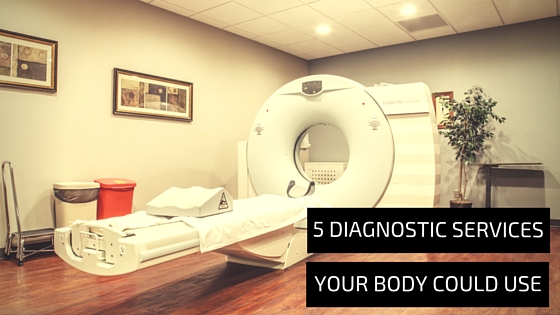The Family Healthcare Imaging Center may be recently remodeled, but we have served Sioux City and its surrounding areas with state-of-the-art screening technology for years. When you need answers, we have the equipment, the expertise, and the compassion to make sure you are taken care of.
Family Health Care of Siouxland offers Vascular Screening in Sioux City
If your veins and arteries are the highways of your body, then our vascular screening technology is your roadmap. If you are at a risk for stroke, peripheral vascular disease, aneurysms, or other concerns affecting your arteries, the various diagnostic methods offered by the Family Health Care Imaging Center can mean answers and a plan to get you back on the road to health.
We offer:
- Abdominal Aortic Aneurysm Screening: This screening surveys the largest artery in the abdomen, and the largest supplier of blood flow to the body. Only 20% of the people experiencing an Abdominal Aortic Aneurysm survive, which is why this screening can be so important.
- Peripheral Artery Disease Screening: Narrowing blood vessels in the legs caused by fatty plaque build up is a strong predictor of heart disease. When your legs feel tired, achy, and uncomfortable, it might be a symptom of artherosclerosis, a hardening of the arteries that affects nearly 12 million Americans. Catch it early and you can add quality years to your life.
- Stroke/Carotid Artery Screening: The third leading killer in the United States, carotid artery disease is a major cause of strokes. Since many strokes offer no warning signs, preventative screening can be a very important part of a health care plan.
Want more information about vascular screenings in Sioux City? Read here.
We offer Sioux City’s best MRI services.
Magnetic Resonance Imaging (MRI) is a powerful imaging tool that uses magnets to create clear pictures of the inside of the human body. Since this procedure often takes 60 minutes and requires a patient to lie very still, Family Health Care of Siouxland does everything it can to make the process comfortable, relaxing, and effective.
An MRI is a useful tool when detecting disease or internal bleeding. It can detect trauma, aneurysms, stroke, tumors, and inflammation, and can provide valuable information as to the health of organs, joints, bones, and soft tissues.
Read here for more information about getting an MRI in Sioux City.
Need a CAT Scan in Sioux City?
A CAT Scan, otherwise known as a CT (computerized tomography) scan, is a special x-ray that uses computer technology to produce several internal images of the body. Because of the sophistication of the equipment, CT scans provide more information than a traditional x-ray. They can be used to get details on bones, soft tissues, blood vessels, and any other part of the body where a cross-section view is useful. They are most commonly used to determine internal injuries and disease.
CAT scans are usually fairly brief, taking between five and thirty minutes depending on the area of the body being screened.
Read here for more information on how to prepare for your CT scan.
The Family Health Care Imaging Center offers state-of-the-art ultrasound technology.
Ultrasounds use high-frequency sound waves to capture internal body processes in real time. You may be most familiar with ultrasounds when it comes to prenatal health; however, ultrasounds can show so much more than growing babies. They can show organ structure, organ movement and function, as well as blood flow and vascular transport.
Because of this ultrasounds are a great tool to assess the health of veins and organs, as well as check for malignant and benign growths and cysts.
Do you know how to prepare for an ultrasound in Sioux City?
When your bones need a DEXA Scan in Sioux City, Family Health Care is here.
If you are at risk for osteoporosis, then a DEXA Bone Density Scan could—and should—be in your future. By scanning your spine and hip, this screening tool can evaluate your bone density, by determining the strength of your bones and assessing your risk for future fractures. If caught early enough, low bone density is completely reversible, making this screening tool both highly effective and highly recommended.
Read on to learn more about osteoporosis.
Have questions? Need answers? Call us today.


